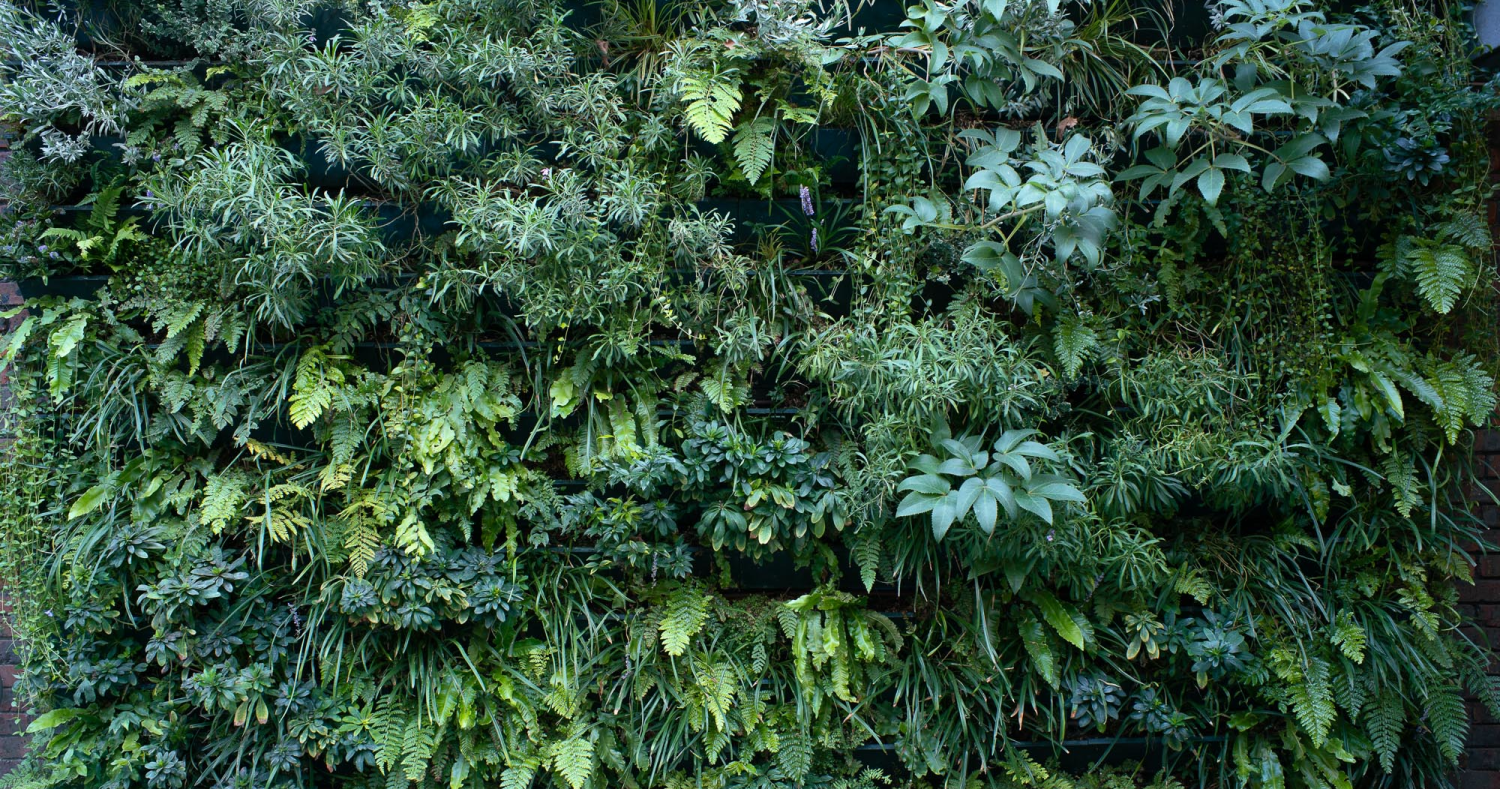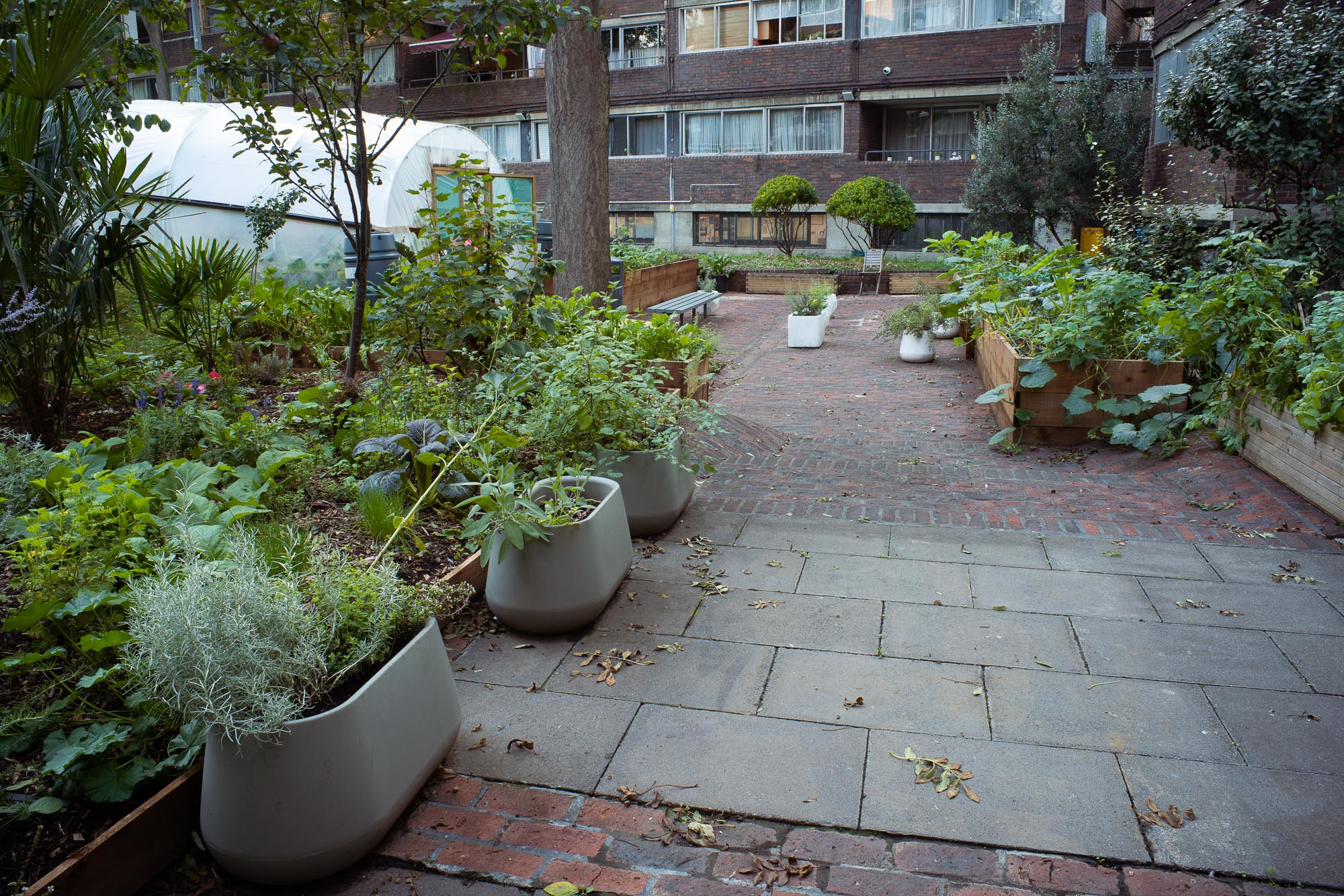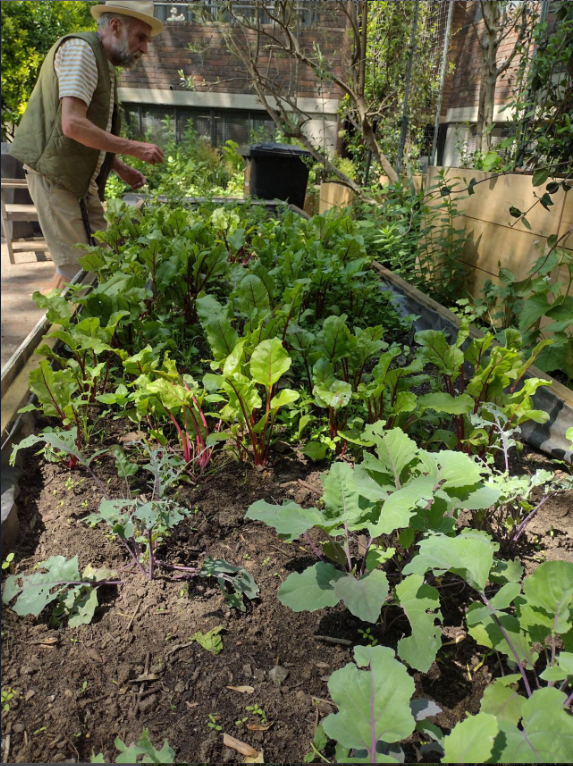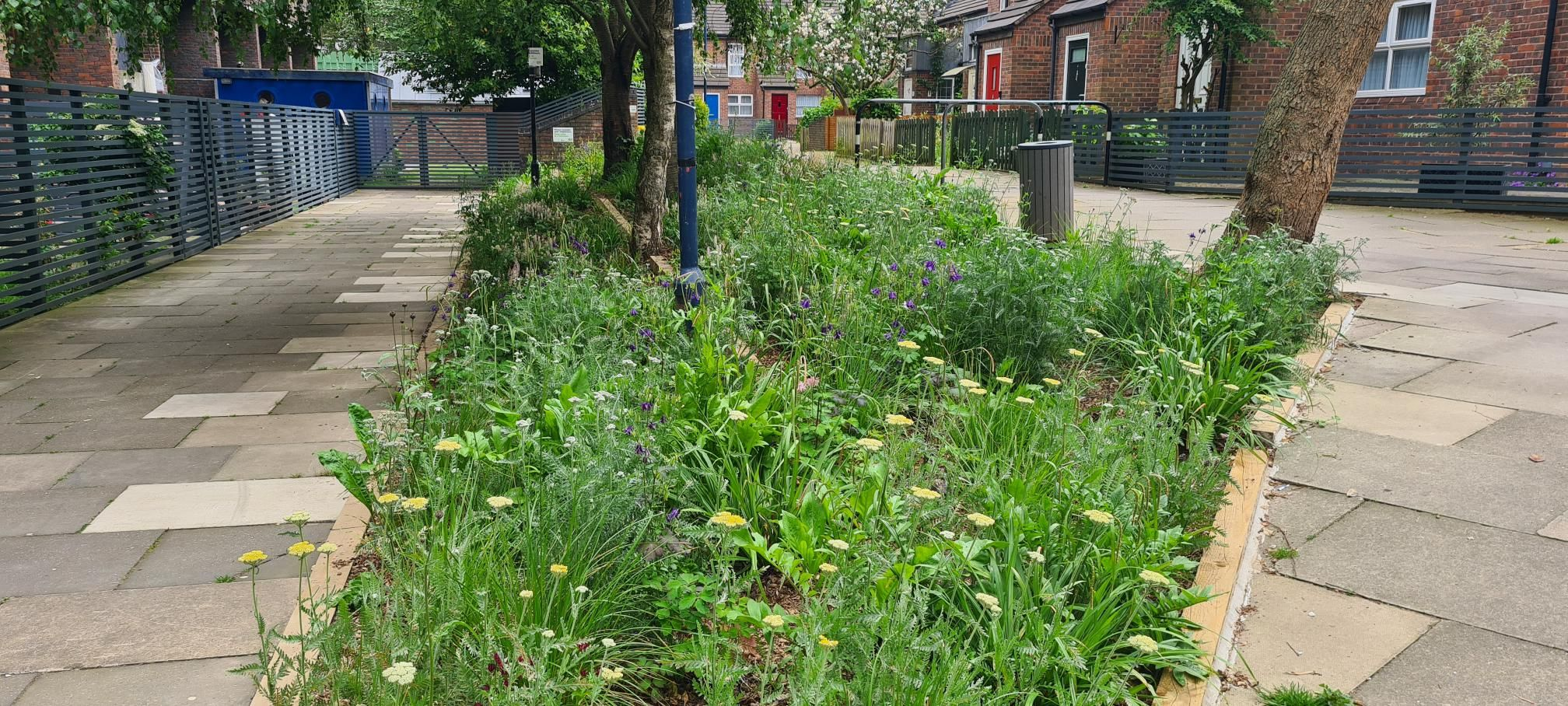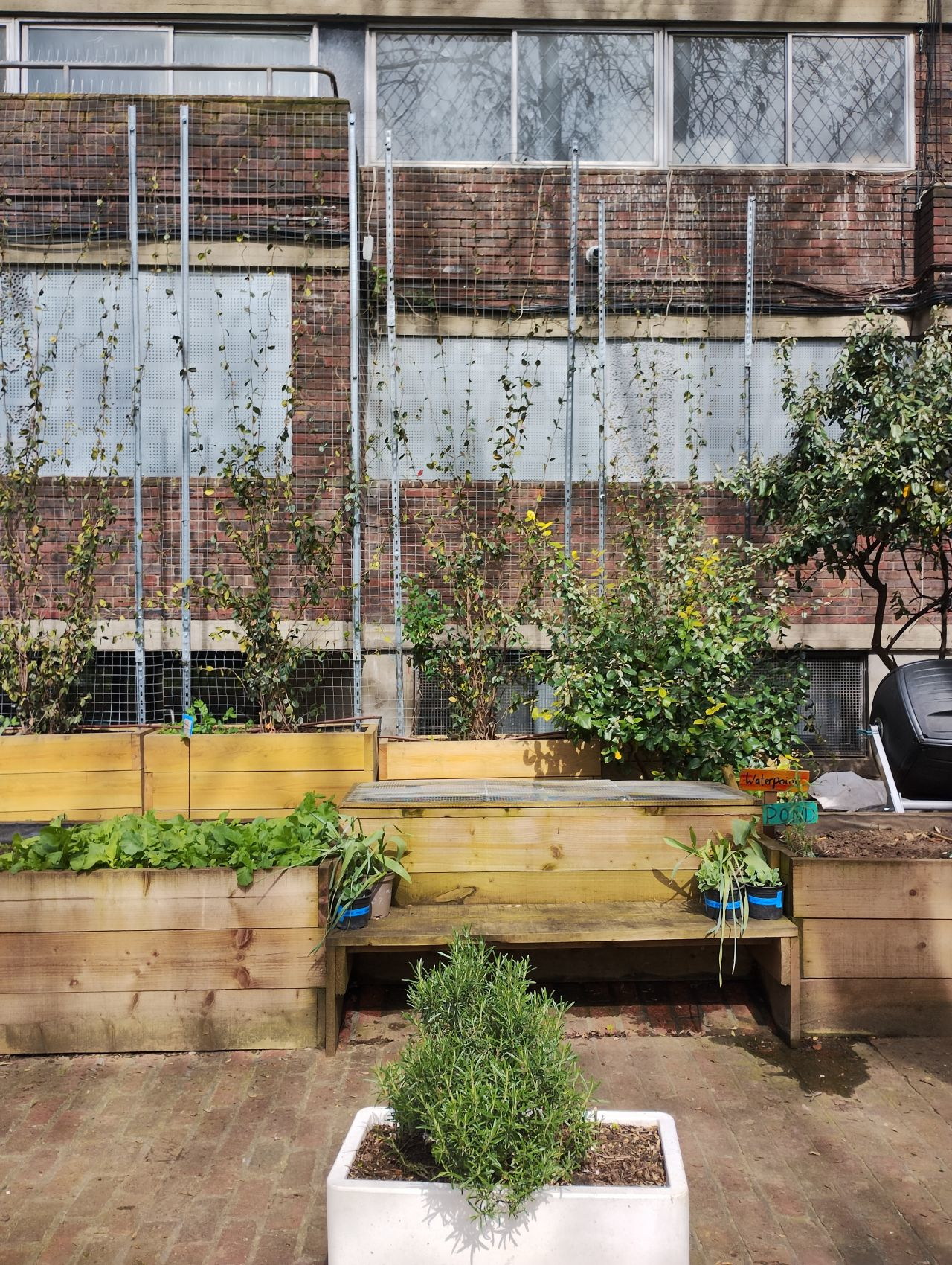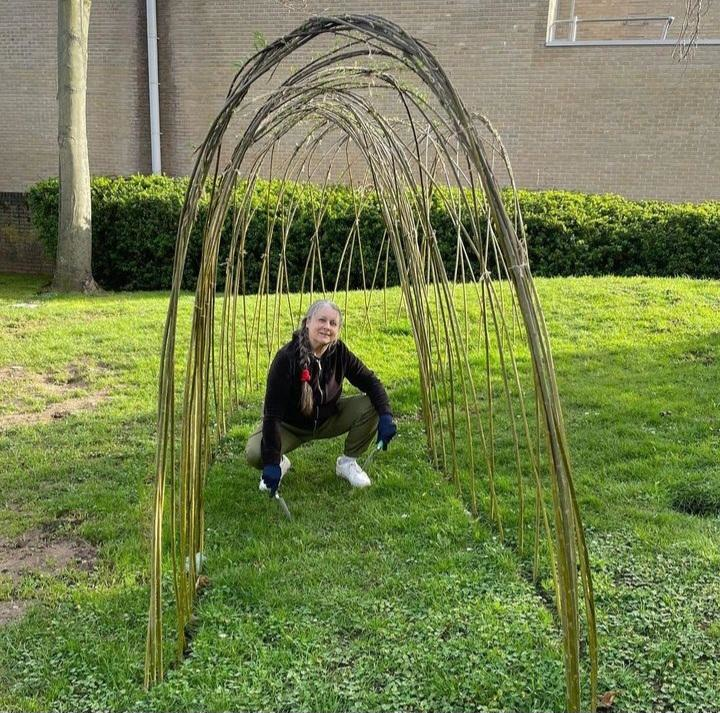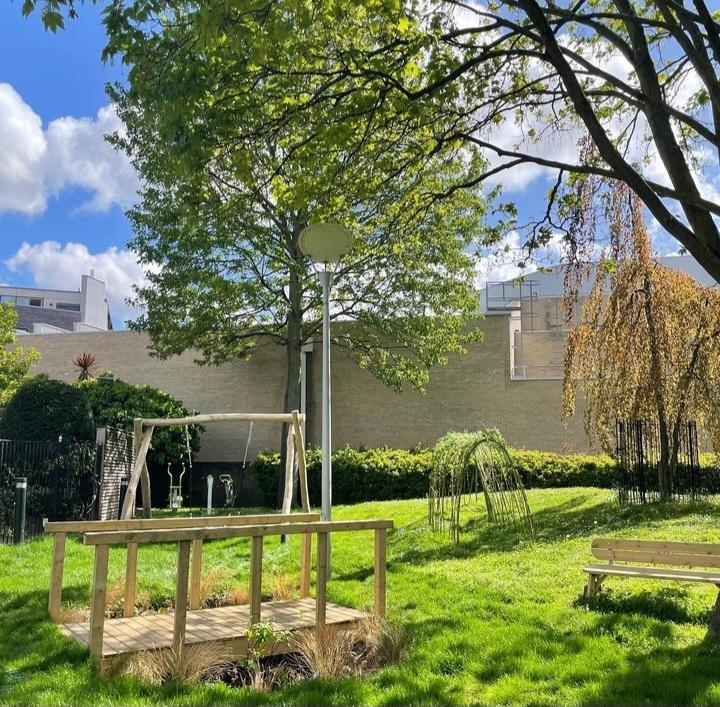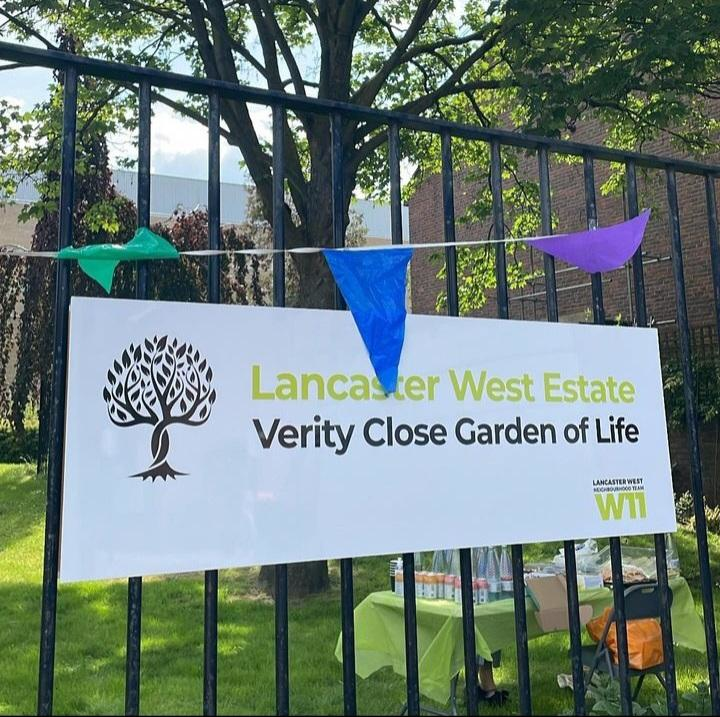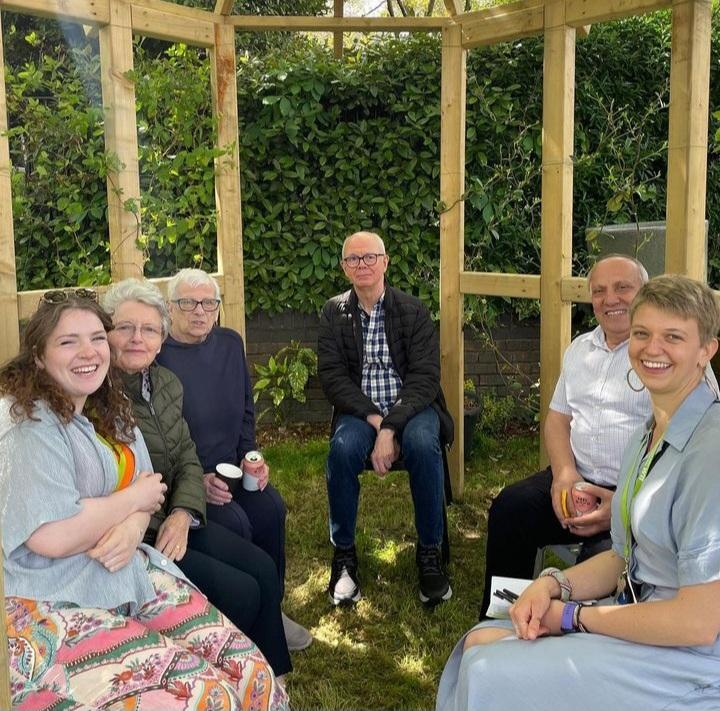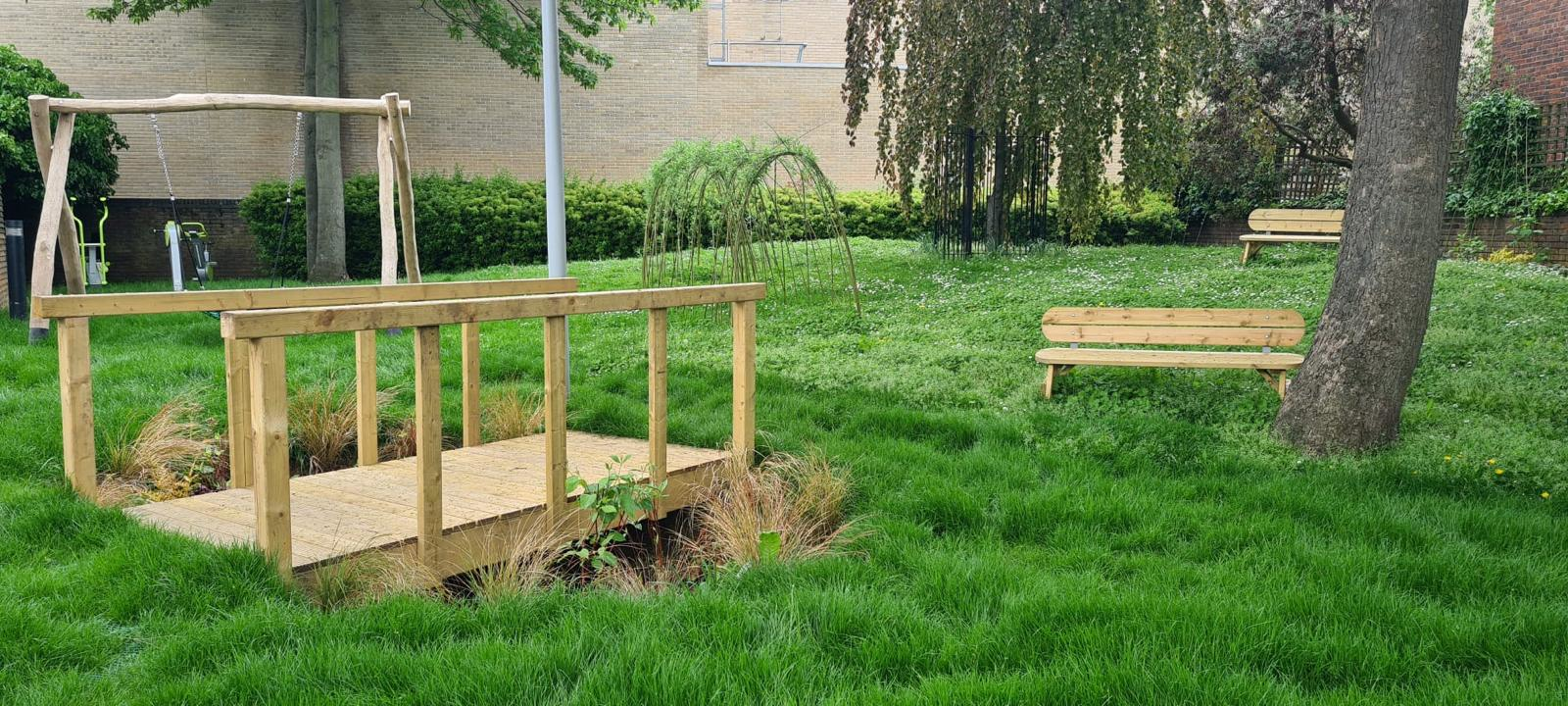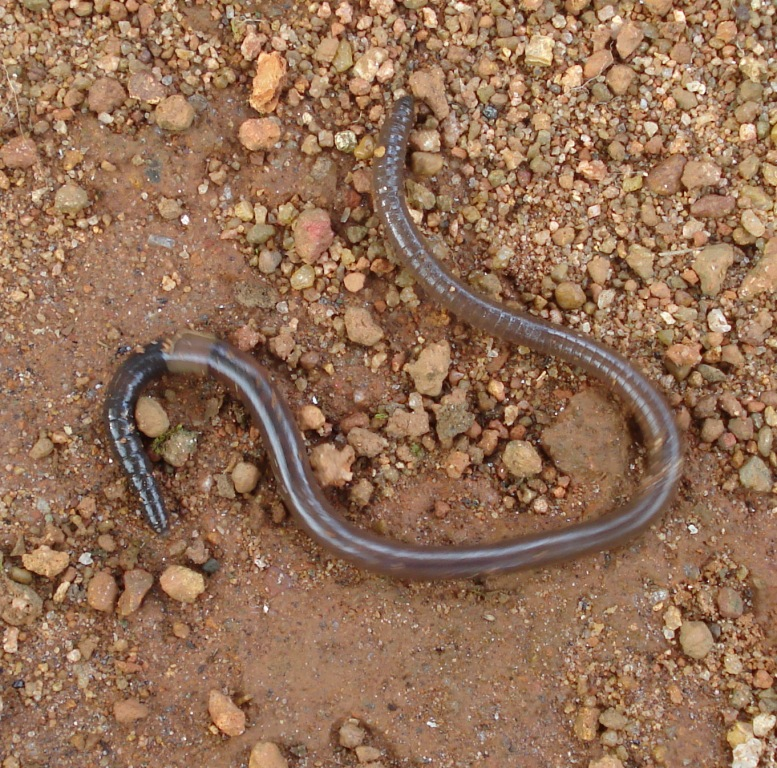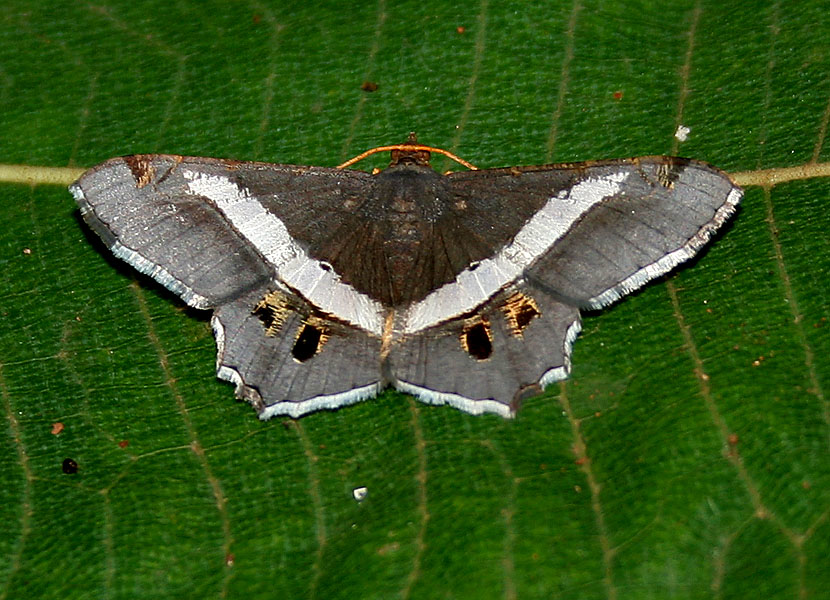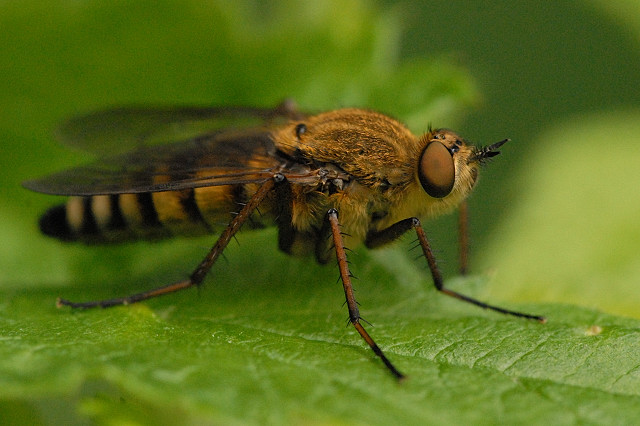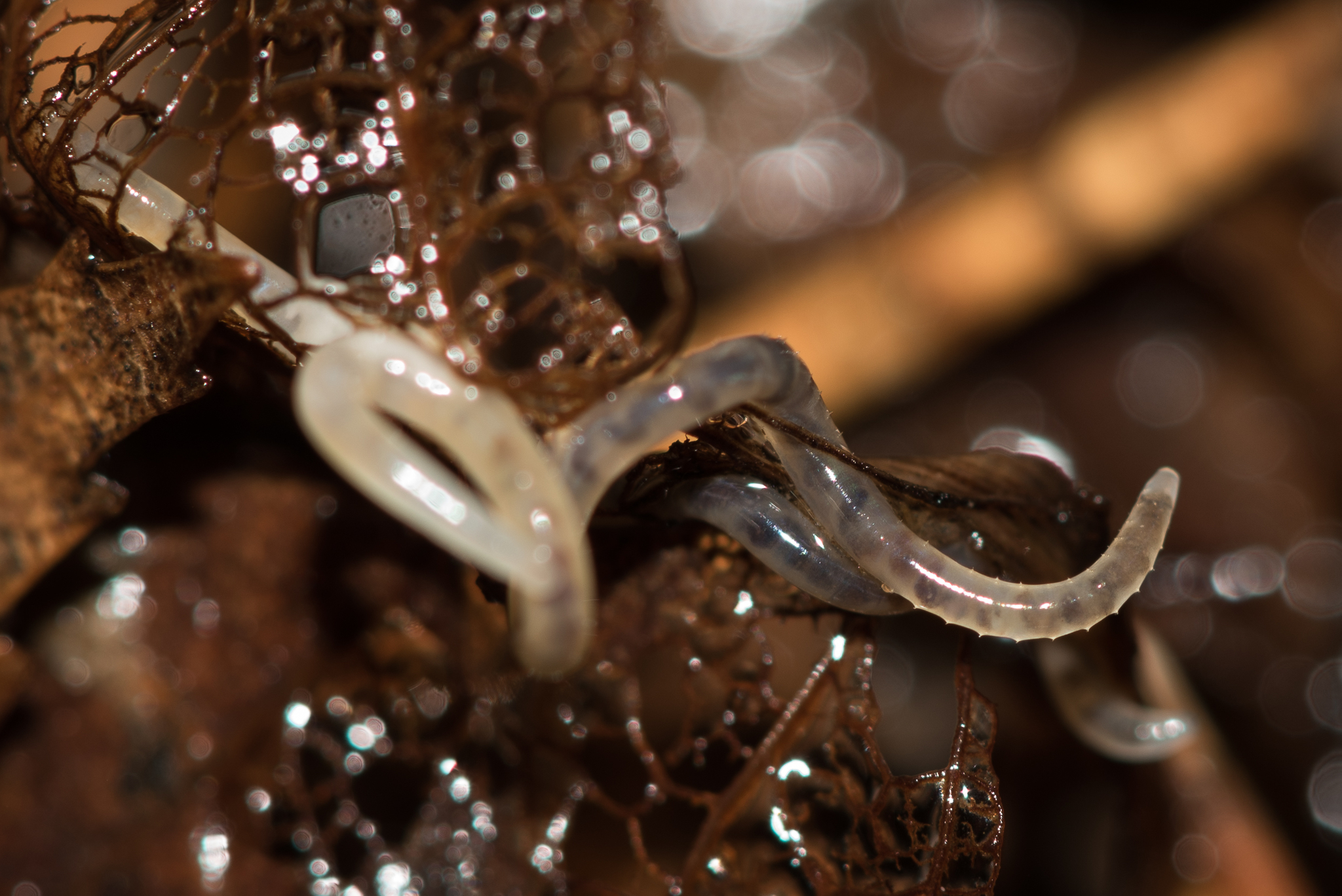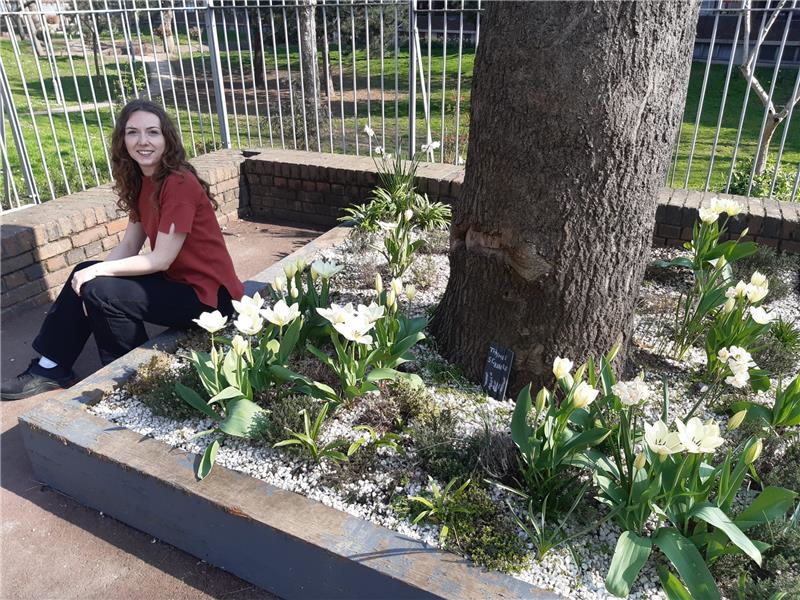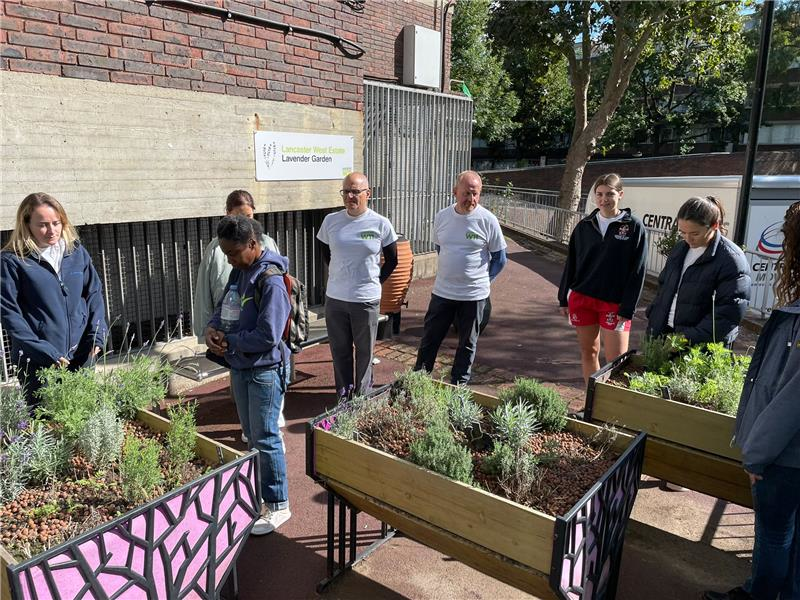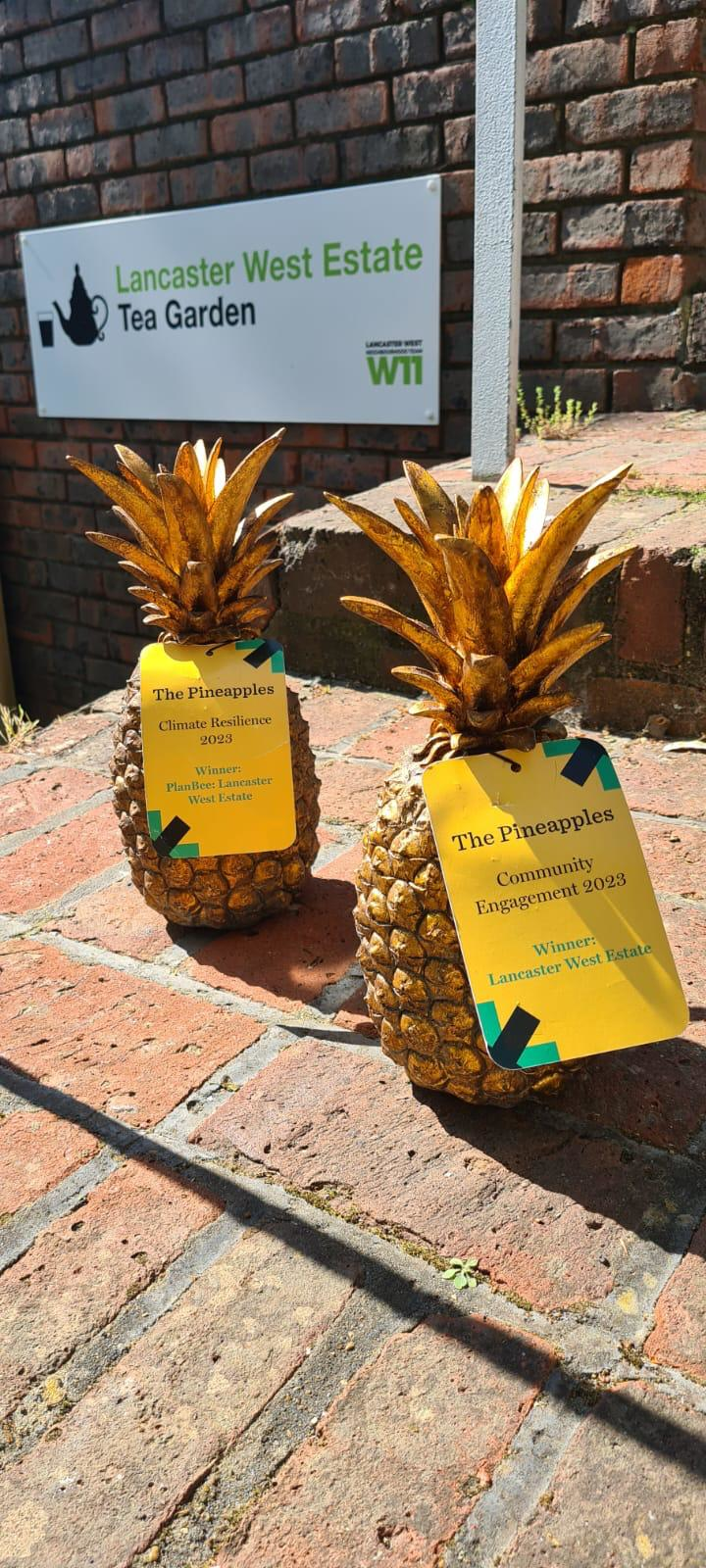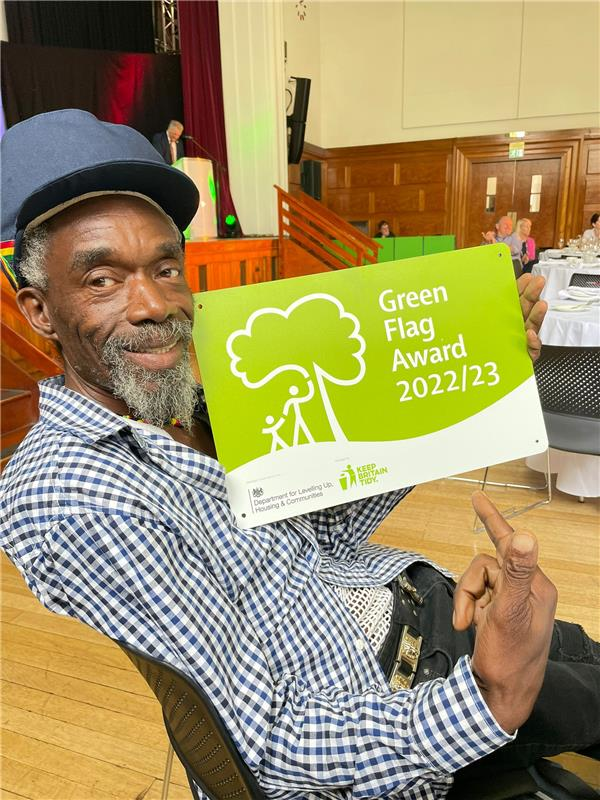Why a Garden Estate?

Growing and sharing: The Tea Garden
Located outside Baseline Business Studios, the Tea Garden is open to residents who would like to find out more about gardening, have access to growing space, or who would like to collect some fresh herbs.
Started in 2018, the Tea Garden includes and ever-growing range of VegTrugs, planters, greenhouses, compost bins and an accessible ramp.
It is also the hub of our head community gardener Robert Pereno.
For a taste of some freshly grown herbs, come on down, grab a bag and help yourself!
Started in 2018, the Tea Garden includes and ever-growing range of VegTrugs, planters, greenhouses, compost bins and an accessible ramp.
It is also the hub of our head community gardener Robert Pereno.
For a taste of some freshly grown herbs, come on down, grab a bag and help yourself!

Growing and sharing: The Secret Garden
Fully co-designed with residents and completed in the summer of 2022 the Secret Garden includes an accessible polytunnel, planters for food-growing, compost bins, fruit trees, a native hedgerow and even a fish pond!
Huge thank you to local resident, Zakia and all of her helpers at the launch party, who made the mosaics!
Huge thank you to local resident, Zakia and all of her helpers at the launch party, who made the mosaics!
Volunteer with us

Growing and sharing: Food Growing Planters
Several moveable food growing planters have been introduced to the Estate, to allow residents to grow their own fruits, vegetables and herbs.
Currently, food planters can be found between Testerton Walk and Hurstway Walk, between Camelford Walk and Talbot Grove House, and at Clarendon Walk. This was made possible through funding from the Neighbourhood Community Infrastructure Levy.
These planters have become the site of food growing clubs, thanks to funding from Hubbub.
Currently, food planters can be found between Testerton Walk and Hurstway Walk, between Camelford Walk and Talbot Grove House, and at Clarendon Walk. This was made possible through funding from the Neighbourhood Community Infrastructure Levy.
These planters have become the site of food growing clubs, thanks to funding from Hubbub.


Food growing and gym equipment available!
Reducing flood risk: Verity Close Garden of Life
Completed in 2023, the Verity Close Garden of Life is a fully co-designed, multigenerational Sensory Garden.
Following two engagement events with residents new play equipment was installed, additional seating areas provided, food growing spaces and an edible green wall were planted.
The garden also includes energy-generating gym equipment and a biodiverse swale that protects the area from flooding.
Following two engagement events with residents new play equipment was installed, additional seating areas provided, food growing spaces and an edible green wall were planted.
The garden also includes energy-generating gym equipment and a biodiverse swale that protects the area from flooding.

Reducing Flood Risk: Lower Clarendon Rain Garden
Following the summer 2021 flooding event the Lancaster West Neighbourhood team has been working to address the flood risk by installing green sustainable urban drainage systems (SuDS).
We heard from residents that this space was previously misused and presented an opportunity for improvement.
With funding from the Mayor of London's Future Neighbourhoods fund, this area was transformed into a terraced rain garden.
We heard from residents that this space was previously misused and presented an opportunity for improvement.
With funding from the Mayor of London's Future Neighbourhoods fund, this area was transformed into a terraced rain garden.
Learn more about SuDS

Improving Biodiversity: Lancaster West Prairie Garden
The Prairie Garden between Hurstway and Testerton Walk on Lancaster West was planted in October 2021 by Walkway residents.
The Prairie Garden was built after consulting with Lancaster West residents and is a project in partnership with Grow2Know CiC and the Natural History Museum.
The Prairie Garden was built after consulting with Lancaster West residents and is a project in partnership with Grow2Know CiC and the Natural History Museum.

Turning grey to green: Treadgold Pocket Park
In July 2023, a mobile pocket path was installed on Lancaster Green. It transforms a previously unused area to a functional outdoor space to work, relax or socialise in, featuring various seating and a green roof.
The space was co-designed with Treadgold House residents at an engagement event in May 2022. This has also been supported by the Mayor of London's Future Neighbourhoods 2030 Fund.
The space was co-designed with Treadgold House residents at an engagement event in May 2022. This has also been supported by the Mayor of London's Future Neighbourhoods 2030 Fund.
Learn more about Notting Dale 2030

Turning grey to green: Camelford Walk Terrace Garden
Co-designed with residents of Camelford Walk, this Moroccan-themed garden makes use of the previously inaccessible terrace area, providing seating, planting, freshly grown herbs and even a hand-carved shed.
With thanks to all residents who contributed to the design of this space, attended the opening, and special thanks to Goldfinger Design for their work on the shed!
With thanks to all residents who contributed to the design of this space, attended the opening, and special thanks to Goldfinger Design for their work on the shed!
Find it on the Neighbourhood Services Map


Absorbs pollutants and carbon dioxide
Turning grey to green: Camelford Court Green Roof
Completed in 2023 the biosolar roofs on Camelford Court provide renewable energy to residents as well as creating new green space that remove carbon dioxide from the atmosphere as well as pollutants.


Improves local air quality
Turning grey to green: Jasmine Walls
Creating a thriving garden estate one railing at a time, these jasmine walls provide greening, privacy and a beautiful scent come Summer!
They can be found at:
They can be found at:


The borough's first living green walls on a social housing estate!
Turning grey to green: Living Green Wall & Garden Cafe
Found at the North Kensington Resource Center, the Borough's first living green walls make use of the ramp, transforming it into a biodiverse habitat.
This wall improves local air quality, provides a home for species and creates a tranquil garden space for residents using the resource center.
In the Garden Cafe, this previously barren indoor area has been transformed into a calming and green work environment, free to access for residents.
With thanks to Cameron Gardens for their plant donation.
This wall improves local air quality, provides a home for species and creates a tranquil garden space for residents using the resource center.
In the Garden Cafe, this previously barren indoor area has been transformed into a calming and green work environment, free to access for residents.
With thanks to Cameron Gardens for their plant donation.
Designing and improving: Flood Alleviation at Morland House and Talbot Grove House
Following flooding in 2021 we have been working with residents, civil engineers and landscape architects to design better green spaces around your blocks that will help protect against future floods. As the effects of climate change worsen, the risk of flooding increases so its important we address this in the greenest way.
Designs have been completed by our consultants Arup, and elements of the designs will start to be delivered from Summer 2025.

Designing and improving: Landscape and Public Realm on Lancaster West Estate
To address the effects of climate change we have been looking at how we can address flooding, improve biodiversity and create accessible green spaces for residents across the estate.
At an engagement event held at Kensington Leisure Centre in December you told us your priorities for landscape are lighting, signage and wayfinding and planting.
At an engagement event held at Kensington Leisure Centre in December you told us your priorities for landscape are lighting, signage and wayfinding and planting.
We are exploring ways to deliver on these designs, exploring funding opportunities and partnerships with our local businesses.

Our spaces are award-winning
Green Flag Award: Lancaster West Estate first won a Green Flag in 2022, making it the first estate in the Royal Borough of Kensington and Chelsea to be given this award. The Estate has also won the award for three consecutive years, in 2023 and 2024. In fact, in 2024, the Estate scored the highest possible marks available. This international recognition reflects the continued excellence in the management of green spaces at Lancaster West.
The Pineapples: The Estate has also won two Pineapple Awards. In 2023, the Lancaster West Neighbourhood Team won the Climate Resilience award. This celebrated the Estate's biodiversity and community green spaces. The Team and the Lancaster West Residents' Association were also the Future Place winners in 2024, which highlighted the urban greening and collaboration with residents in creating green spaces that are adapted to climate risks.
Unlock Net Zero Awards: In 2023, the first ever Unlock Net Zero Biodiversity and Nature Award was given to the Plan Bee programme at Lancaster West. The judges were particularly impressed at how this programme increased involvement in and access to nature for over 2000 residents.
The Pineapples: The Estate has also won two Pineapple Awards. In 2023, the Lancaster West Neighbourhood Team won the Climate Resilience award. This celebrated the Estate's biodiversity and community green spaces. The Team and the Lancaster West Residents' Association were also the Future Place winners in 2024, which highlighted the urban greening and collaboration with residents in creating green spaces that are adapted to climate risks.
Unlock Net Zero Awards: In 2023, the first ever Unlock Net Zero Biodiversity and Nature Award was given to the Plan Bee programme at Lancaster West. The judges were particularly impressed at how this programme increased involvement in and access to nature for over 2000 residents.
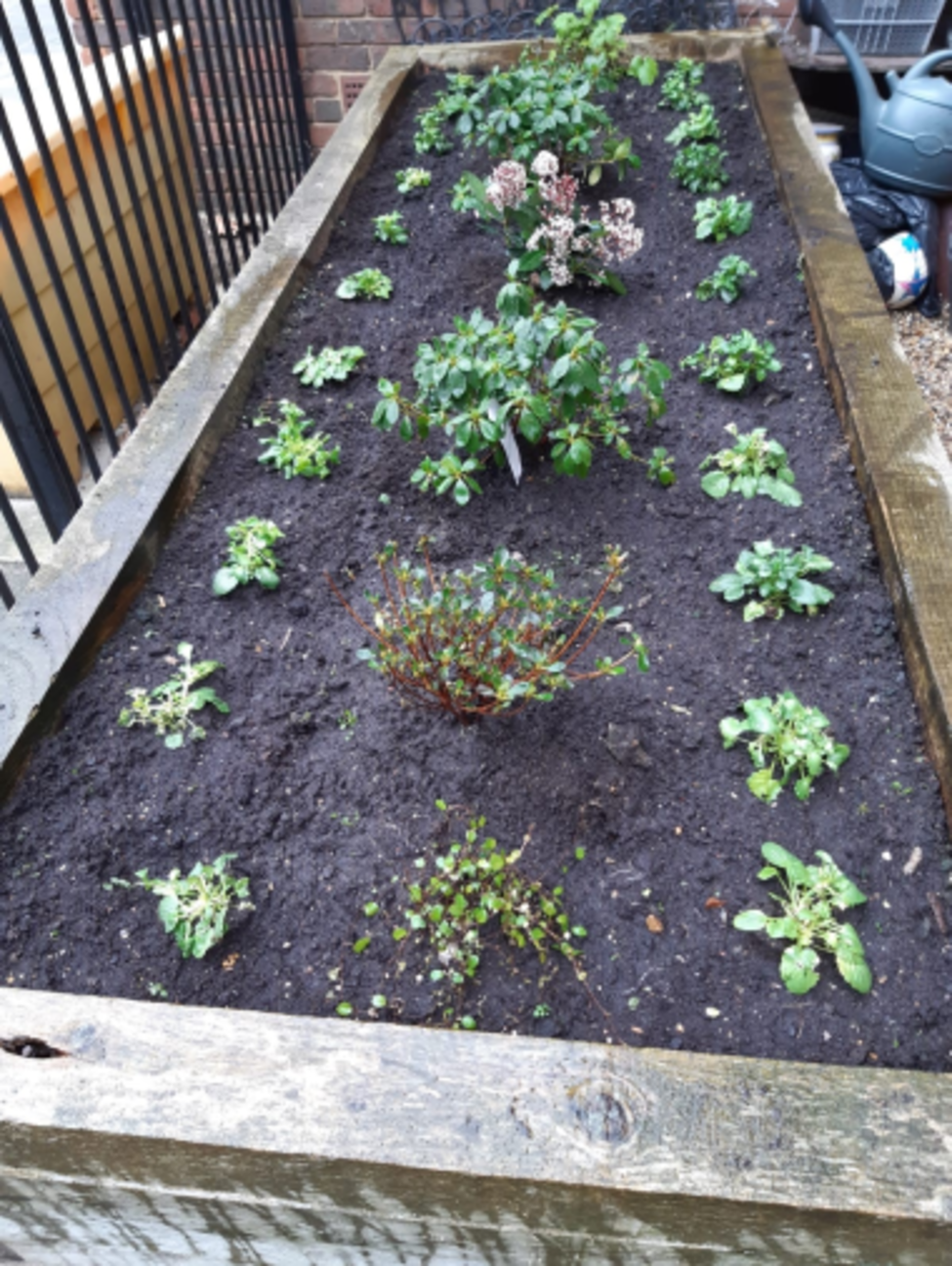
Rob's Tips for Gardening
SOILCheck the type of soil that is recommended for the plant you want to grow. Most plants grow better in a specific type of soil.
INDOOR PLANTSIt is recommended that you change the soil for indoor plants every 6 months - to renew the nutrients.
WATERINGToo much moisture can be just as damaging to plants as too little - It is important to keep an eye on the weather and remember to water the roots!
COMPOSTComposting kitchen and garden waste transforms it into a valuable and nutrient rich food for plants.
INDOOR PLANTSIt is recommended that you change the soil for indoor plants every 6 months - to renew the nutrients.
WATERINGToo much moisture can be just as damaging to plants as too little - It is important to keep an eye on the weather and remember to water the roots!
COMPOSTComposting kitchen and garden waste transforms it into a valuable and nutrient rich food for plants.

